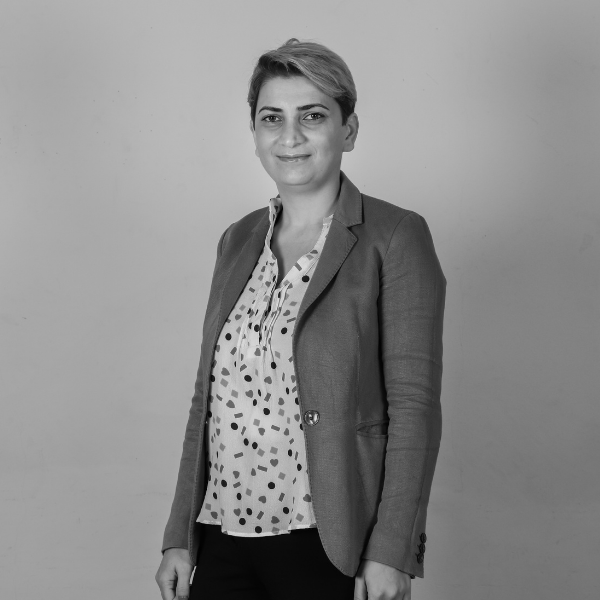A brief description of the experience
She holds a Master's degree in Organization Development and is pursuing a Ph.D. in Conflict Analysis and Management. With a comprehensive background spanning both academic and private sectors, she has occupied diverse managerial roles. Accumulating over a decade of project management and research expertise, she has authored several publications. Presently, she serves as the principal researcher at the National Center For Educational Quality Enhancement, alongside providing consultancy services to various research entities. Furthermore, boasting 12 years of instructional experience in disciplines such as sociology, psychology, social sciences, and urban studies, she frequently contributes as a speaker at conferences and engages in international initiatives.
Courses:
- Academic writing.
- Academic writing for master students.
- Research methods in social sciences.
- Scientific work methods.
- Visual communication.
- Preparation of master's thesis.
- Qualitative research methods.
- Quantitative research methods.
- Urban Psychology
- Urban sociology
- Preparation of bachelor’s thesis.
- Environmental and Design Psychology
Research and Publications:
- Study of the 2022 budget priorities of Gori Municipality - publishing house “Universali”, Tbilisi 2021
- Kartlelishvili, T. (2023). Economic Survival Strategies in the Post-Socialist Mining City Chiatura. In R. Turaeva, & W. Sgibnev, Mining cities in Central Asia and the South Caucasus: survival strategies under conditions of extreme peripheralisation (pp. 53-73). Leipzig: Leibniz-Institut für Länderkunde.
Projects:
- Joint Project - Ivane Javakhishvili Tbilisi State University; Leibniz-Institut für Länderkunde/Leibniz Institute for Regional Geography; State University of Khujand; German-Kazakh University 01.07.2018 - 28.02.2020 - Mining cities in Central Asia and the South Caucasus.
Research interests:
urban satisfaction; urban conflicts; gender roles in the urban environment; Issues of adaptation of persons with disabilities in the urban environment, etc.


